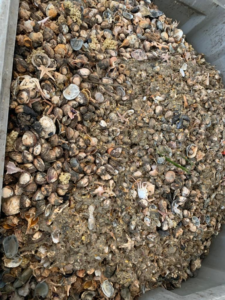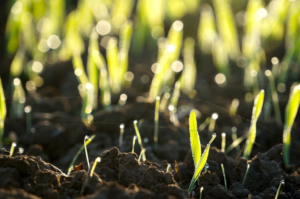Launch of SEA2LAND project: Producing advanced bio-based fertilizers from fisheries wastes
The SEA2LAND project aims at overcoming challenges related to food production, climate change and waste reuse through the use of organic waste streams. To this end, the SEA2LAND project will work on improving and adapting nutrient recovery technologies to produce bio-based fertilizers from fish and aquaculture processing by-products.
SEA2LAND will optimize and combine technologies and processes (e.g. advanced composting, bio-drying, freeze concentration and extraction, algae production, pyrolysis, membrane technology, chitin extraction, thermo-mechanical fractionation, enzymatic hydrolysis) to generate bio-based and tailor-made fertilizers, both for local crops and export. The basis of the project is the regional production of bio-based fertilizers within a local and circular framework through the development of demonstration pilots that can be replicated across Europe. The project proposes the realization of more than 7 case studies, applying 10 different technologies in 6 representative areas of the fisheries sector (North, Baltic, Atlantic, Cantabrian, Mediterranean and Adriatic Sea).
Ghent University, FiBL Europe and Gembloux Agro-Bio Tech will play a central part in the project. Ghent University takes the lead on quality and safety assessment of final products that might have a potential to be used as bio-based fertilizers. FiBL Europe will assess the compliance of these fertilizers for use in organic farming as well as provide a support in the dissemination of project results. Gembloux Agro-Bio Tech will test the most promising bio-based fertilizers for their performance in agro-systems (in collaboration with BRIOAA) and in anticipated future climatic scenario, using the modern Ecotron facilities of Gembloux Agro-Bio Tech.
The SEA2LAND project is a 4-year collaborative Innovation Action (IA) funded with 7.7 million € by the EU in the framework of the Horizon 2020 call H2020-RUR-2020-1. It started in January 2021 and is coordinated by NEIKER, the Basque Institute for Agricultural Research and Development. It brings together 26 partners from 11 countries (ten European countries and Chile). The partners in SEA2LAND represent research organisations active in the fields of by-products valorisation, related technologies and agronomy (including organic agriculture) but also industry representatives from the fish/aquaculture sectors, fertiliser sector and technology sector. Finally, the project also involves farmer’s associations as well as consultancy experts for aquaculture, fisheries, environmental management and dissemination, and business plan development.
 |
 |
| Shell waste, a potential source for bio-based fertilizer production (Photo: COPEMO, Cinzia Spinsanti) | In the project, the agronomic performance of the bio-based fertilizers will be tested in field trials. (Photo: FiBL, Thomas Alföldi) |
Contact
- Ivona Sigurnjak, Ghent University
- Pia Pedross, FiBL Europe
- Cécile Thonar, Gembloux Agro-Bio Tech (University of Liège)
- Miriam Pinto, NEIKER, project coordinator
Links
- cordis.europa.eu: Information on the SEA2LAND project on CORDIS